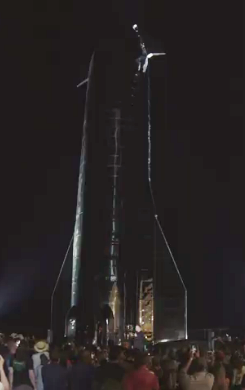Northrop Grumman buys back Pegasus rockets from Stratolaunch
Northrop Grumman announced this week that it has bought back from Stratolaunch the two Pegasus rockets that company had bought for the purpose of launch from its giant Roc airplane.
Phil Joyce, vice president of space launch programs at Northrop Grumman, said this week that the company is trying to sell the launches using the two remaining Pegasus XL rockets, and officials plan to keep the Pegasus rocket’s L-1011 carrier jet flying for at least five or 10 more years.
The airborne launch of NASA’s Ionospheric Connection Explorer, or ICON, scientific satellite Thursday night off Florida’s east coast is the final scheduled flight of a Pegasus XL rocket. Variants of the solid-fueled Pegasus rocket have flown on 43 satellite delivery missions since 1990.
“We actually purchased those back (from Stratolaunch),” Joyce said in an interview with Spaceflight Now. “So they’re in a very advanced state of integration, which means they’re available for a very rapid response launch. We could launch one of those in six months, the second one probably in eight (months).
This buy back tells us two things, both negative, about both companies. With Stratolaunch, it means they have abandoned entirely the idea of launching satellites using a combination of Roc and Pegasus. The reasons are unclear, but I would guess that they have either discovered the engineering didn’t work, or the economics made the combination unprofitable, being too expensive.
As for Pegasus, it appears the rocket has no further contracts, and has had so much trouble drumming up business that they have decided not to build more. Instead, they are going to try to get contracts for these already built Pegasuses, and are likely going to offer lower prices for them. Even if this works, it does appear that we are about to see the end of the Pegasus rocket.
Created in the early 1980s by Orbital Sciences (later Orbital ATK) as a cheaper alternative to the expensive big rockets of the time, Pegasus had a viable business model for years. Slowly over time however its launch price rose, until it was no longer very cheap. And when SpaceX and other new cheaper alternatives arrived in the past six years, the company, eventually absorbed by Northrop Grumman, was unable to remain competitive.
The irony here is that Northrop Grumman purchased Orbital ATK expressly to allow it to enter the launch market, using both Pegasus and Antares. With Pegasus gone, and Antares still failing to find any customers other than NASA, it doesn’t look like the merger is paying off well for the company.
Northrop Grumman announced this week that it has bought back from Stratolaunch the two Pegasus rockets that company had bought for the purpose of launch from its giant Roc airplane.
Phil Joyce, vice president of space launch programs at Northrop Grumman, said this week that the company is trying to sell the launches using the two remaining Pegasus XL rockets, and officials plan to keep the Pegasus rocket’s L-1011 carrier jet flying for at least five or 10 more years.
The airborne launch of NASA’s Ionospheric Connection Explorer, or ICON, scientific satellite Thursday night off Florida’s east coast is the final scheduled flight of a Pegasus XL rocket. Variants of the solid-fueled Pegasus rocket have flown on 43 satellite delivery missions since 1990.
“We actually purchased those back (from Stratolaunch),” Joyce said in an interview with Spaceflight Now. “So they’re in a very advanced state of integration, which means they’re available for a very rapid response launch. We could launch one of those in six months, the second one probably in eight (months).
This buy back tells us two things, both negative, about both companies. With Stratolaunch, it means they have abandoned entirely the idea of launching satellites using a combination of Roc and Pegasus. The reasons are unclear, but I would guess that they have either discovered the engineering didn’t work, or the economics made the combination unprofitable, being too expensive.
As for Pegasus, it appears the rocket has no further contracts, and has had so much trouble drumming up business that they have decided not to build more. Instead, they are going to try to get contracts for these already built Pegasuses, and are likely going to offer lower prices for them. Even if this works, it does appear that we are about to see the end of the Pegasus rocket.
Created in the early 1980s by Orbital Sciences (later Orbital ATK) as a cheaper alternative to the expensive big rockets of the time, Pegasus had a viable business model for years. Slowly over time however its launch price rose, until it was no longer very cheap. And when SpaceX and other new cheaper alternatives arrived in the past six years, the company, eventually absorbed by Northrop Grumman, was unable to remain competitive.
The irony here is that Northrop Grumman purchased Orbital ATK expressly to allow it to enter the launch market, using both Pegasus and Antares. With Pegasus gone, and Antares still failing to find any customers other than NASA, it doesn’t look like the merger is paying off well for the company.

